Learn English
Learn English Effectively: Practice Your Skills While Watching Sports
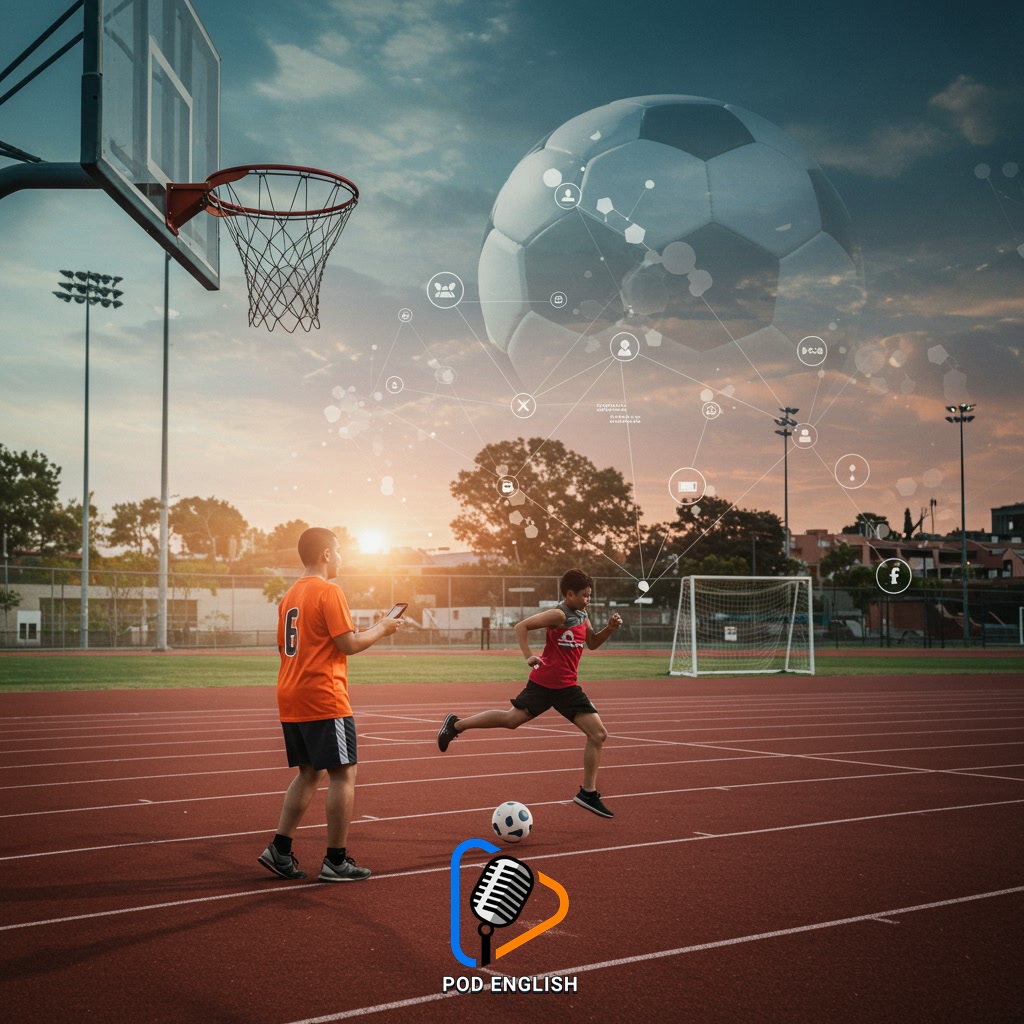
This content explores an engaging method to enhance English language skills. It suggests leveraging the activity of watching sports as a practical way to improve comprehension and vocabulary. By focusing on commentary, interviews, and related media, individuals can actively practice listening and understanding in a natural context. This approach offers a dynamic and enjoyable path for effective English acquisition.
Table of Contents
- Section 1: Introduction: Combining Your Passion for Sports with English Learning
- Section 2: Why Watching Sports is an Effective English Learning Tool
- Section 3: Choosing the Right Sports, Commentary, and Resources
- Section 4: Active Listening Techniques While Watching Sports
- Section 5: Building Vocabulary and Understanding Sports-Specific Language
- Section 6: Improving Pronunciation and Fluency Through Sports
- Section 7: Making it a Habit: Consistent Practice for Better Results
Section 1: Introduction: Combining Your Passion for Sports with English Learning
Learning English can sometimes feel like a challenge, requiring dedication and consistent effort. However, what if you could integrate this goal with something you genuinely love and enjoy? This guide explores a dynamic approach: using your passion for sports as a powerful tool to enhance your English language skills. Instead of seeing language practice as a separate task, we’ll discover how the exciting world of sports – from watching live games and listening to commentary to following interviews and reading related news – provides a natural, engaging, and authentic environment for improving your listening comprehension, expanding your vocabulary, and becoming more comfortable with English in real-world contexts. This introduction sets the stage for how you can effectively combine these two interests for more enjoyable and effective language acquisition.
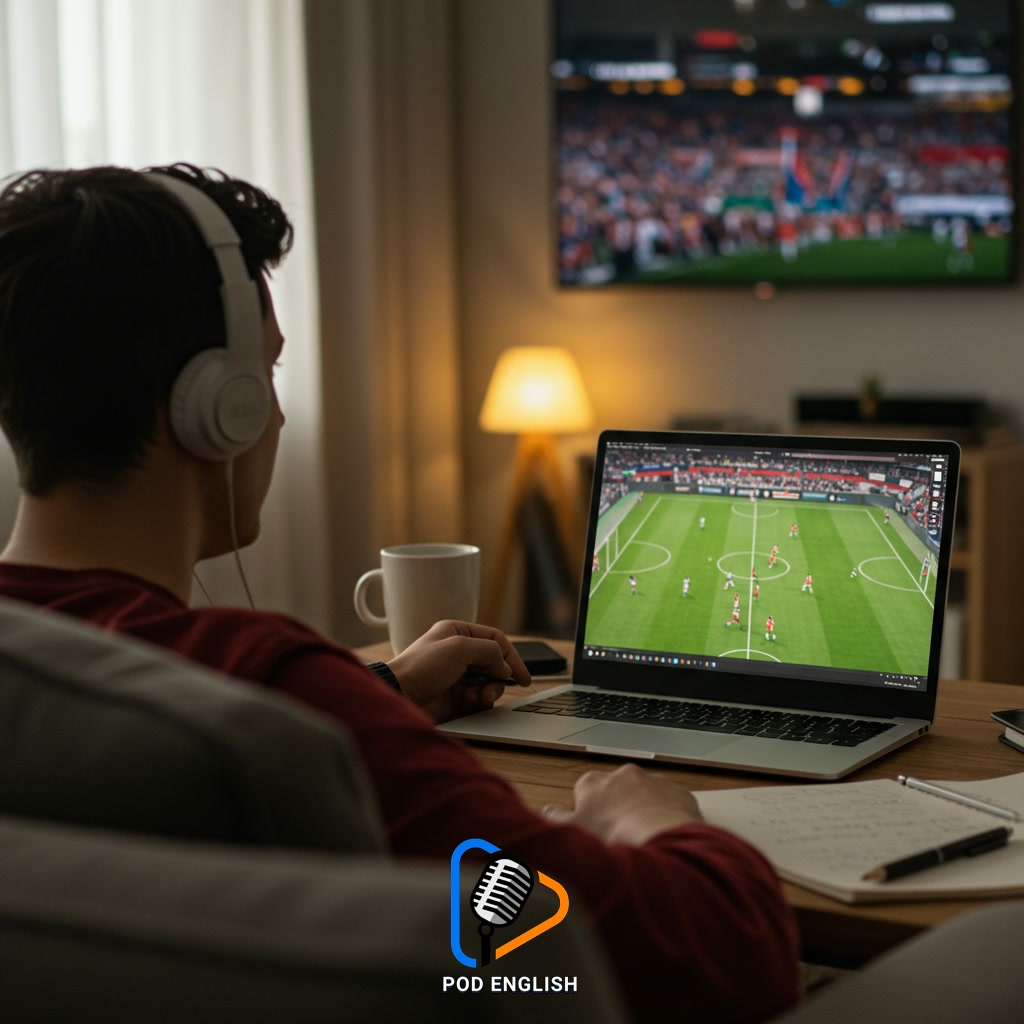
Introduction: Combining Your Passion for Sports with English Learning
Section 2: Why Watching Sports is an Effective English Learning Tool
Building on the idea of integrating learning with enjoyment, watching sports offers a uniquely effective pathway to improving your English. Unlike traditional study methods, it immerses you in authentic language used in real-time situations. Commentators speak quickly, using a mix of formal descriptions and informal, often idiomatic, expressions, providing excellent listening practice for understanding native-level speech. Post-game interviews expose you to different accents and conversational styles as players and coaches discuss events. The visual context of the game itself is invaluable; seeing the action unfold helps you deduce the meaning of unfamiliar words and phrases related to rules, plays, and emotions. Furthermore, the natural repetition of names, terms, and common phrases reinforces vocabulary acquisition effortlessly. This engaging format keeps motivation high, transforming language practice from a chore into an enjoyable activity you might already be doing.
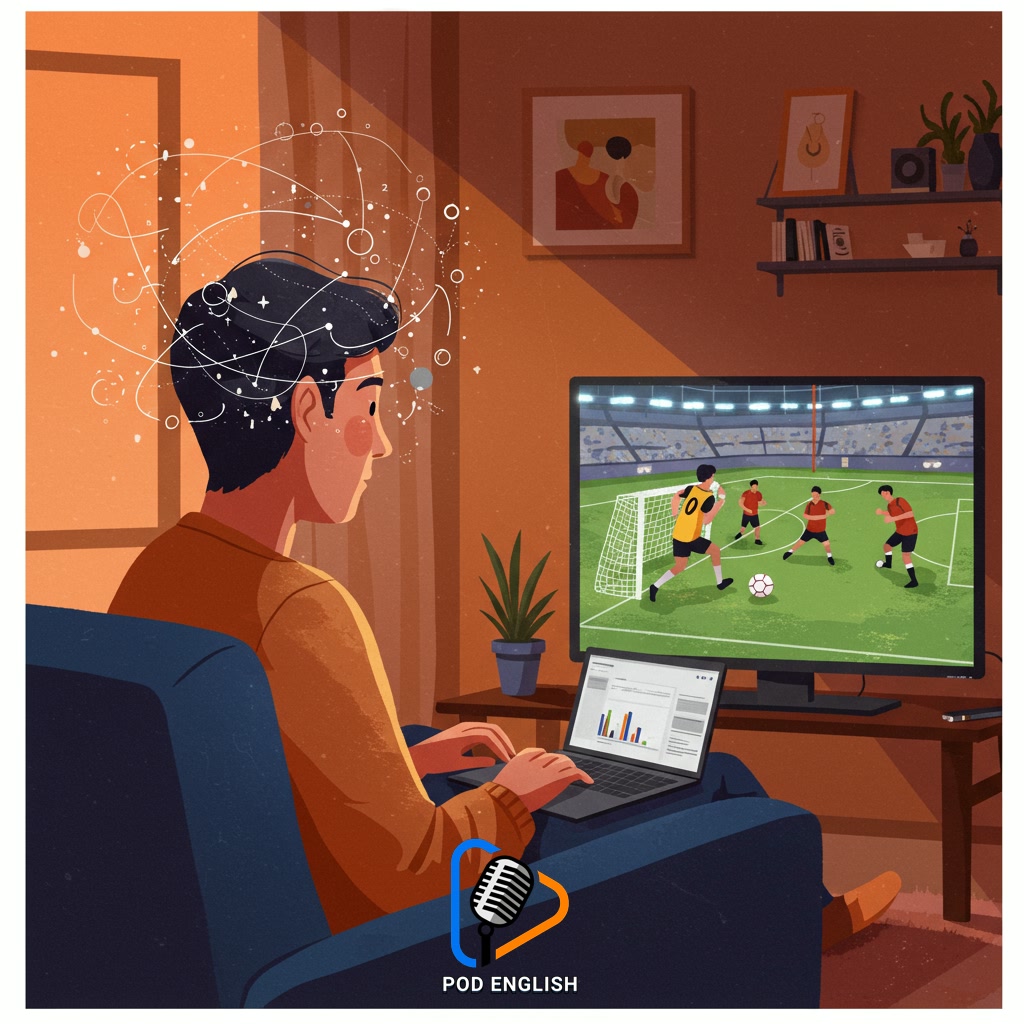
Why Watching Sports is an Effective English Learning Tool
Section 3: Choosing the Right Sports, Commentary, and Resources
Building on the idea of integrating learning with enjoyment, watching sports offers a uniquely effective pathway to improving your English. Unlike traditional study methods, it immerses you in authentic language. To maximize this approach, selecting the right sports, commentary, and supplementary resources is crucial. Choose sports you genuinely enjoy, as this will keep you motivated and engaged. Consider sports with commentary styles you find easier to follow initially, perhaps those with slightly slower pacing or clearer articulation. Explore different commentators. Furthermore, look for resources like official league websites for reading practice, or apps that provide transcripts (use cautiously at first to train listening). The key is to find a combination that matches your current English level and interests, allowing for comfortable yet challenging exposure to the language.

Choosing the Right Sports, Commentary, and Resources
Section 4: Active Listening Techniques While Watching Sports
To actively improve your English listening skills while watching sports, go beyond just enjoying the game. Focus intently on the commentary. Try to catch specific words, phrases, and sentence structures used by commentators. Pay attention to their speed, intonation, and how they describe the action. Don’t worry if you don’t understand everything immediately; the visual context of the game helps you grasp meaning. You can also listen to pre-game analysis, half-time discussions, and post-game interviews. These often feature different speakers and vocabulary related to strategy, player performance, and match outcomes. Consider pausing or rewinding short segments if you hear something interesting or confusing, and try to repeat phrases to practice pronunciation and rhythm. This focused approach turns passive viewing into an active learning session.
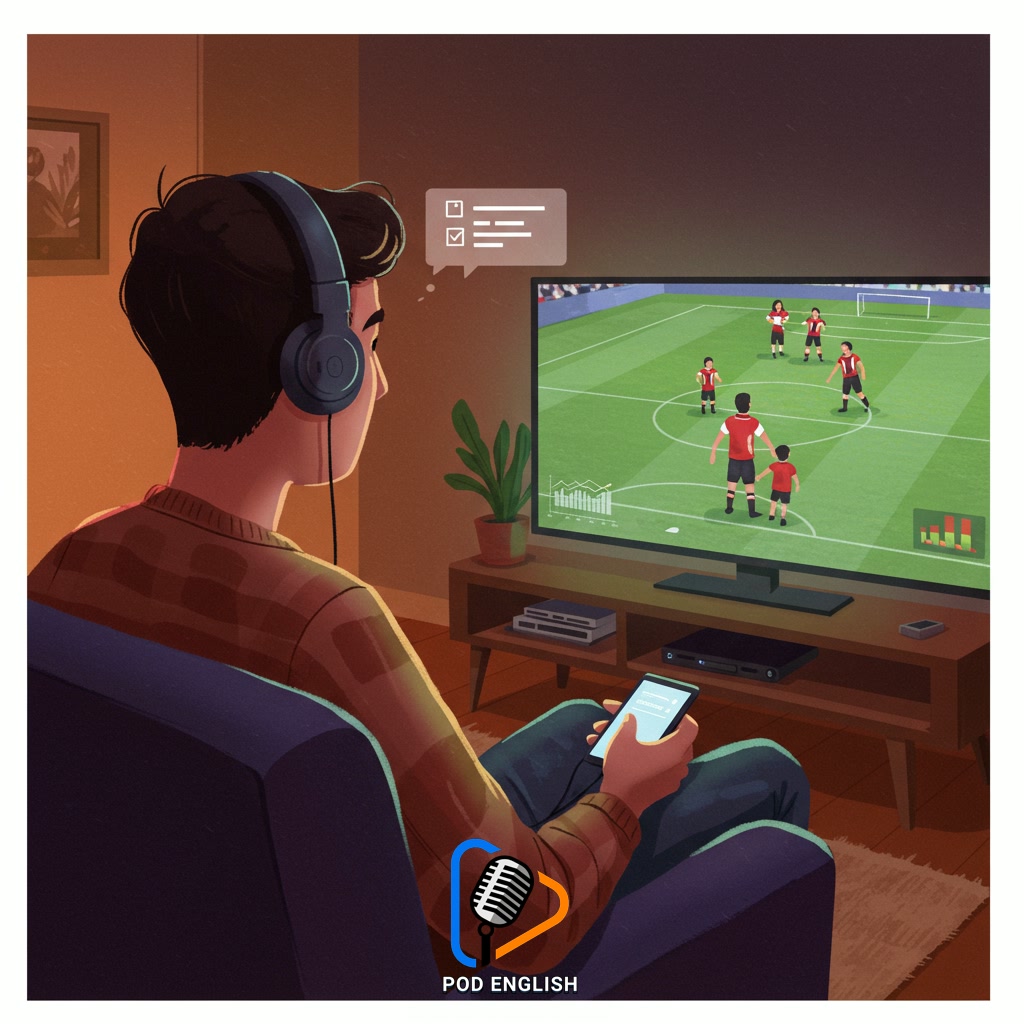
Active Listening Techniques While Watching Sports
Section 5: Building Vocabulary and Understanding Sports-Specific Language
Building on the practice of listening intently to commentary, a key benefit of watching sports is the opportunity to expand your vocabulary, particularly with sports-specific language. Commentators, analysts, and post-game interviews frequently use specialized terms related to rules, strategies, player actions, and equipment. By listening repeatedly and observing the actions on screen, you can often deduce the meaning of these terms from context. Keep a notebook or digital list to jot down unfamiliar words and phrases. Beyond jargon, you’ll also encounter a wide range of general English vocabulary used to describe emotions, performance, and events, providing a dynamic context for learning new words and reinforcing existing ones. This active approach transforms passive viewing into a powerful vocabulary-building exercise.
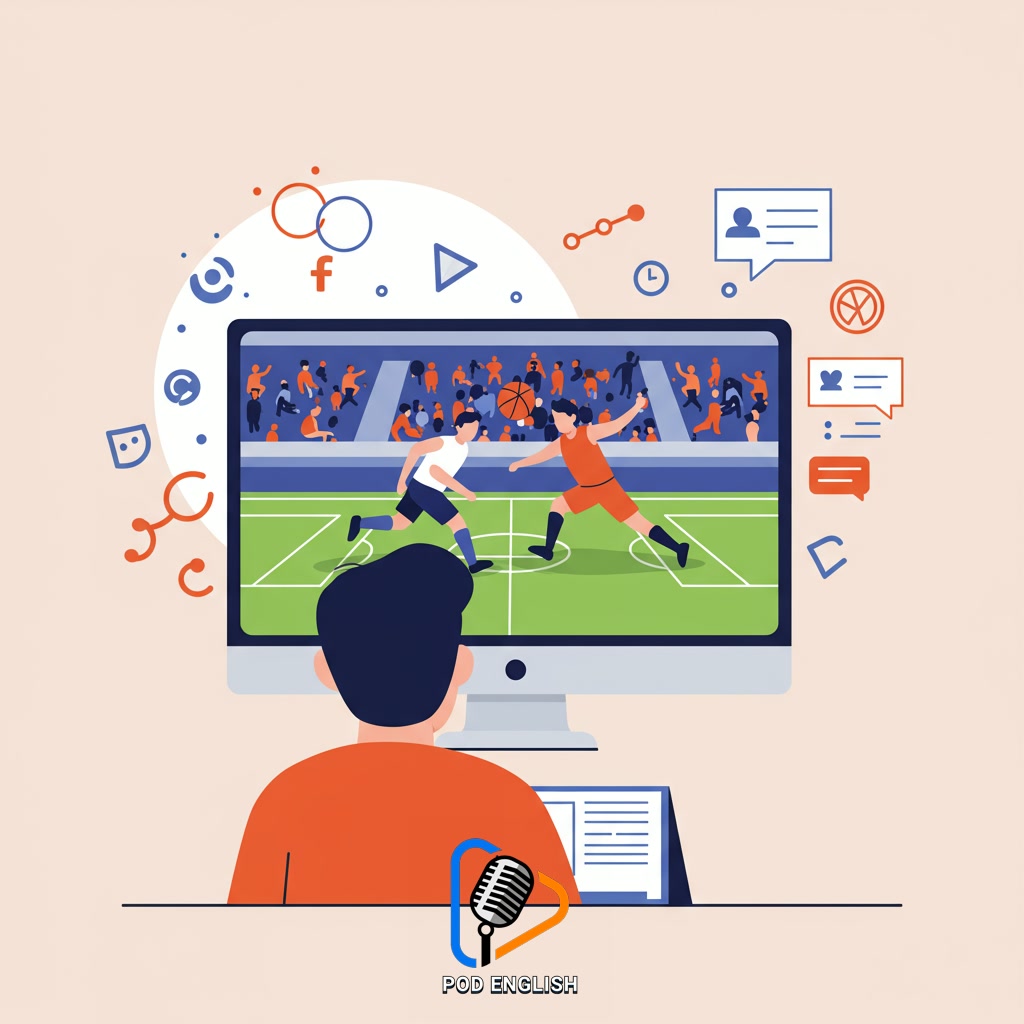
Building Vocabulary and Understanding Sports-Specific Language
Section 6: Improving Pronunciation and Fluency Through Sports
Building on the practice of listening intently to commentary, a key benefit of watching sports is the opportunity to expand your vocabulary, particularly with sports-specific language. Commentators, analysts, and players use a wide range of terms related to actions, rules, and strategies. By paying close attention, you can learn these new words and phrases in context, understanding their meaning through the visuals and the flow of the game. Make an effort to note down unfamiliar words and look them up later. Regularly reviewing this new vocabulary, perhaps by trying to use it when discussing the game, solidifies your understanding and retention. This active engagement turns passive watching into an effective vocabulary-building exercise.
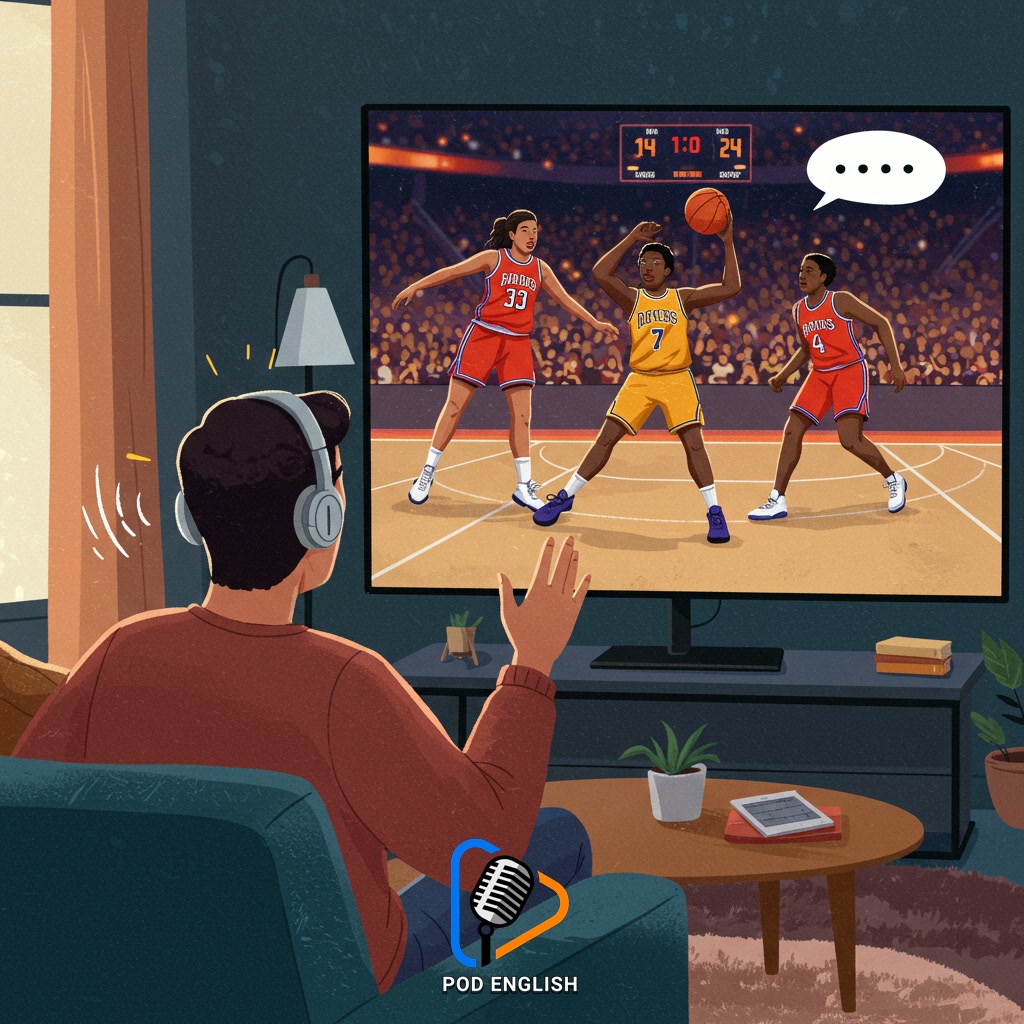
Improving Pronunciation and Fluency Through Sports
Section 7: Making it a Habit: Consistent Practice for Better Results
Building on the practice of expanding vocabulary through commentary, the real key to making lasting progress is consistency. Simply watching sports occasionally won’t yield significant results. Instead, aim to make watching sports a regular habit, integrating it into your weekly routine. Whether it’s tuning into a game, watching a sports analysis show, or listening to related podcasts for a set amount of time each week, consistent exposure is crucial. This regular practice helps reinforce new vocabulary, improve your listening comprehension, and make you more comfortable with different accents and speaking speeds. Think of it like building a muscle; small, regular efforts over time lead to substantial strength and fluency gains. Find a schedule that works for you and stick to it.
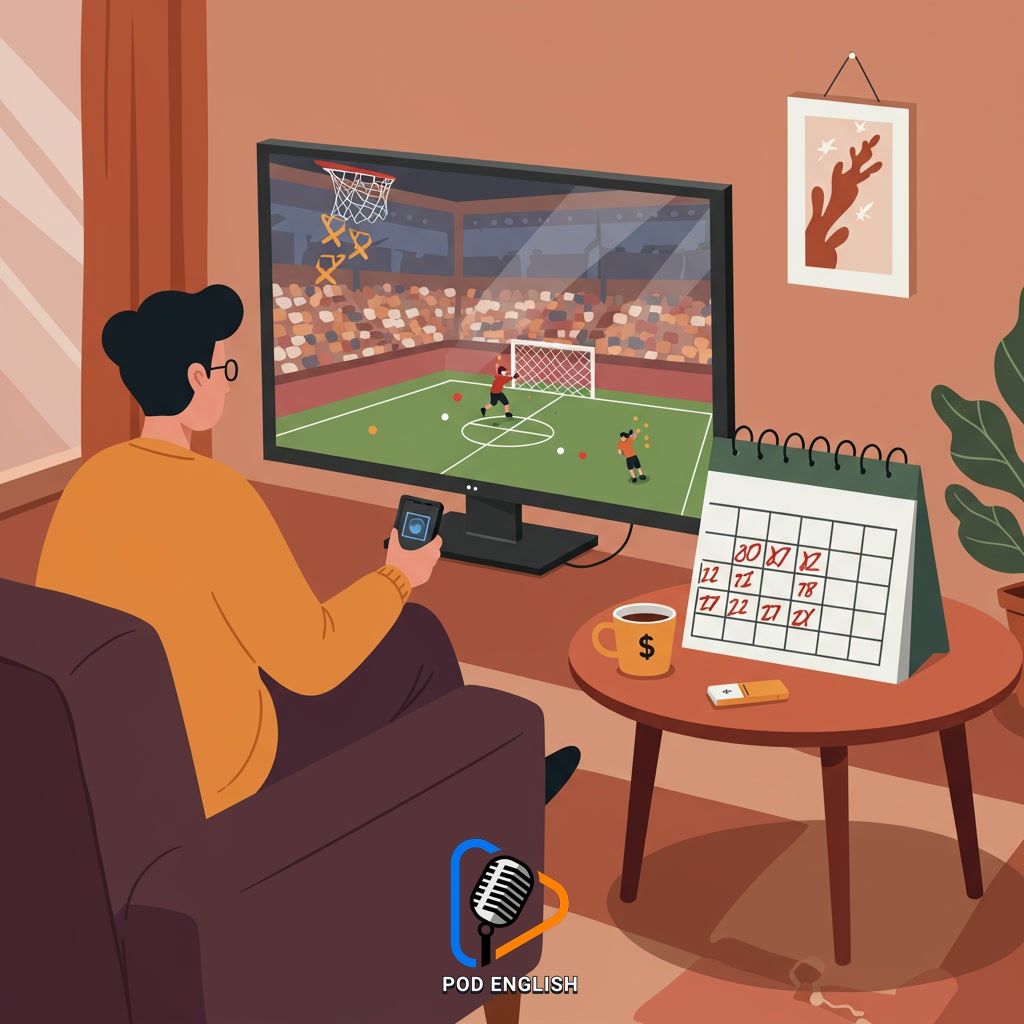
Making it a Habit: Consistent Practice for Better Results













